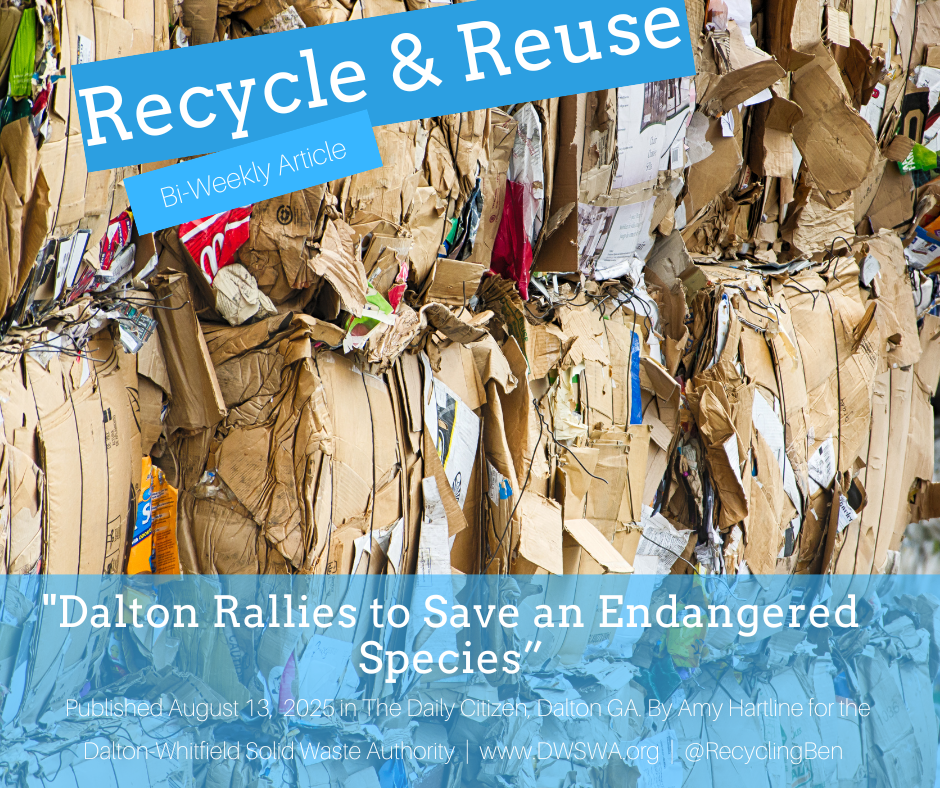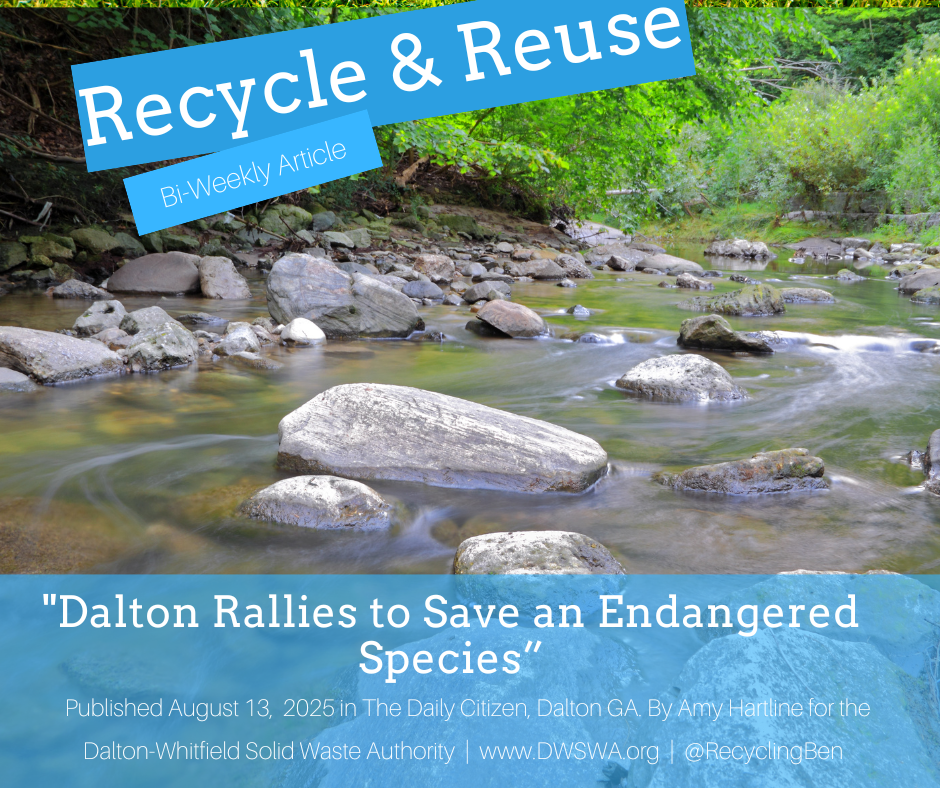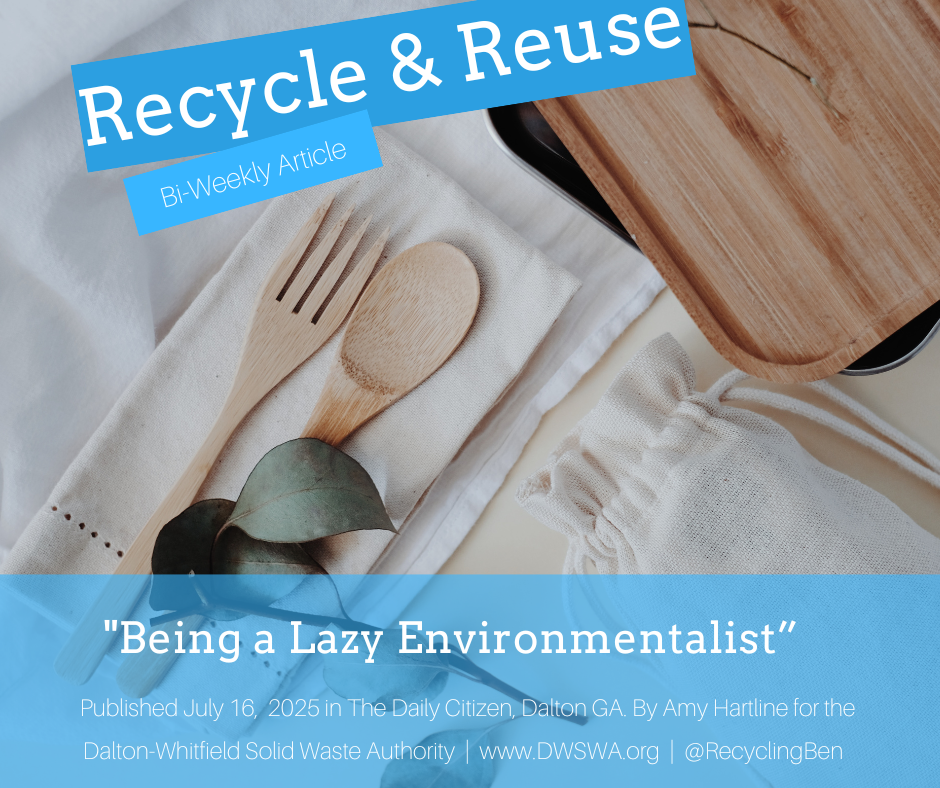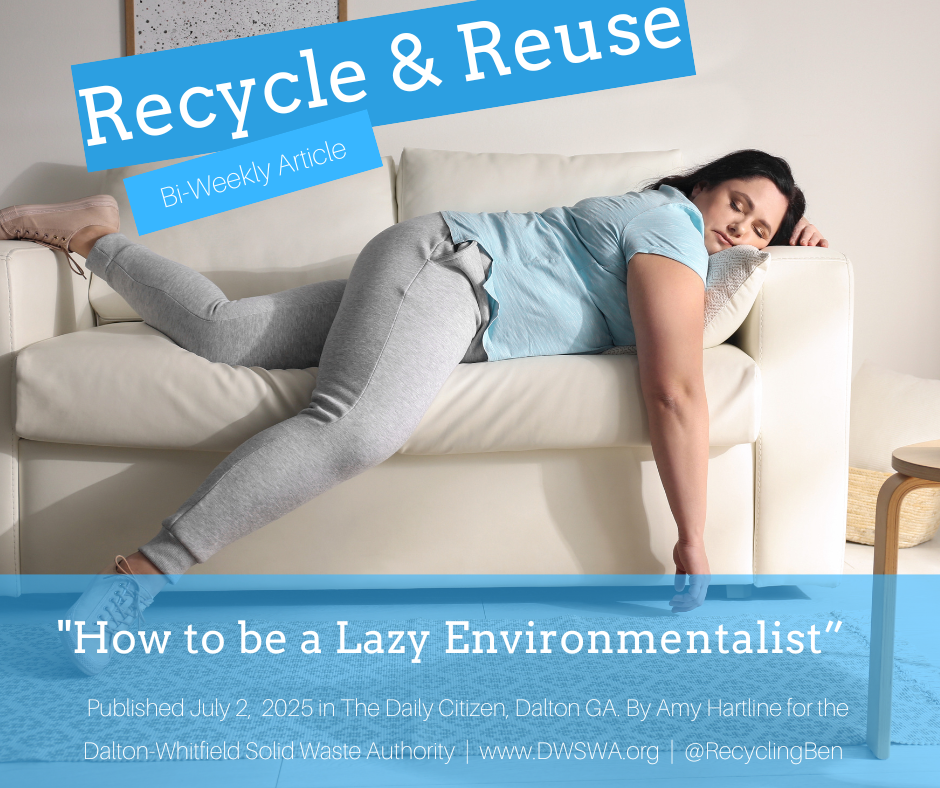National Thrift Shop Day
/Buying gently used clothes from a thrift store may help a local charity, and keeps textile waste out of the landfill.
When you try your best to live the 3 R’s, “reduce, reuse, recycle”, you inevitably end up at a thrift shop. Filled with gently used items ranging from clothing to artwork thrift shops make reusing easy. Today is National Thrift Shop Day, a fun holiday established to recognize thrift stores of all kinds. Whether you call them thrift stores, charity stores, or resale shops these stores typically accepted donations of gently used items for resale.
Many thrift shops will sell items to raise money to help fund a charitable organization, while others are privately owned. No matter the reason behind the store, thrift shops are a treasure trove of previously loved clothing and household goods at excellent prices. Shoppers may find everything from pristine vintage coffee mugs to modern high-end clothing with the original tags still attached.
If you’ve never been to a thrift shop you may imagine a dark, and depressing store filled with dirty products. While there may be bad stores in the mix most thrift shops are clean, well-lit, and organized making shopping a pleasure. Stores will weed out broken, dirty, and unusable products from their donation piles ensuring that the items for sale are the most desirable.
By far clothing is the most common item found at a thrift shop. With today’s fast fashion its cheaper to buy new clothes than to repair or alter items. And, styles change so rapidly that trendy clothing is seen as disposable rather than reusable. According to the EPA (U.S. Environmental Protection Agency), Americans throw away an average of 65 pounds worth of clothing and textiles per year, as of 2012.
Out of an estimated 13 million tons of textiles disposed of annual, only 2 million tons were reused or recycled leaving the vast majority for the landfill. Sadly, almost half of the clothing thrown away could have been reused or recycled too. Typically, the clothing will be recycled into cleaning rags or polishing cloths. Some clothing in good condition is sold or donated to charities overseas if not sold locally.
Reusing and recycling textiles also contributes to saving electricity, water, and other natural resources required in the manufacturing process. For example, it takes about 700 gallons of water to produce the cotton needed to make one t-shirt. When a t-shirt that is still wearable or reusable is thrown away we lose the ability to use that item and all the resources that went into making it, to the fullest extent possible.
If you’re ready to shop at a thrift shop, whether for the benefit of the environment or your pocketbook, consider the following tips. Create a wish list before you go shopping. Some thrift stores are more like stops at a scavenger hunt. You could spend hours and hours browsing without finding something you actually need. Make a list of the household, electronics, or clothing items you want to find. Eventually, you’ll find a second-hand version of that at a good price.
Get to know the local shops. Take a day to visit multiple thrift shops and even consignment stores in the area. They each have their own vibe and specialize in a great variety of products. Some may have more books while others have lots of furniture. Find out if the store is run for charity or for profit. If it is for a charitable cause get more details. Individuals benefiting from the charity may even work in the store.
Frequent thrift shop visitors know that many stores run special sale days or give discounts for military, seniors, and sometimes college students. Some stores have sales for a certain percentage off the regular price on specially marked merchandise, may have a color tag sale or even bag sales. Be advised however that haggling is usually not welcome. However, if you want to contest a price or make a reasonable offer ask to speak with the manager.
Finally, don’t forget to donate items of your own. Reusing is preferable to disposal since the life of the product can be extended a bit more. Even if you’ve had something for a long time someone else may enjoy having something that is new to them. For large items like furniture, it’s best to call ahead to find out if the items are accepted at a particular store, and if pickup from your home is provided. If it’s a sizeable donation tax benefits may be available.
Read this article on The Daily Citizen here: http://www.daltondailycitizen.com/news/local_news/national-thrift-shop-day/article_ab0f02e2-394a-586d-be0b-27dd0a13b35d.html
































